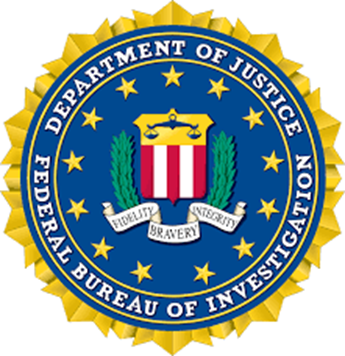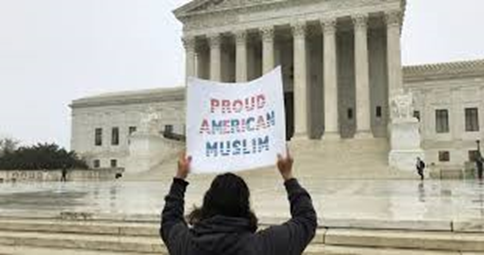
In 2006-2007, during the height of the Global War on Terrorism, the FBI was using paid informants to infiltrate mosques in Orange County California. This FBI operation of mass surveillance and indiscriminate information gathering was called “Operation Flex.” It took place over the course of many years. The informant was instructed to pose as a new convert to Islam, and learn everything he can about the mosques, their imams, and the members of the congregations. Included in the bulk information gathering were the names, telephone numbers, email addresses, and the religious and political beliefs of many Muslim Americans, just for exercising their constitutional right to religious freedom. Video and audio recording devices were used to capture various conversations, prayers, and track peoples’ movements.
The plaintiffs, Sheikh Yassir Fazaga, Ali Uddin Malik, and Yasser
Abdelrahim are being represented by the law firm Hadsell Stormer Keeny Richardson & Renick LLP, the Council for American-Islamic Relations of Greater Los Angeles, and the
ACLU of Southern California. Together they have filed a class-action lawsuit
against the Federal Bureau of Investigations for illegally monitoring and
infiltrating mosques in Southern California. The plaintiffs claim they were
targeted for being Muslims and were subject to unlawful surveillance because of
their religion. Further, the lawsuit alleges that the FBI’s operation
unlawfully targeted individuals on the basis of their religious beliefs and
practices, in violation of the First Amendment. Also, that the FBI unlawfully
collected information on religious practices in violation of the Privacy Act,
constituting unreasonable searches in violation of the Fourth Amendment. The
suit requests that the FBI discard all information illegally collected and
obtained through their unlawful operation and pay damages to the individuals
who were targets of the operation and surveillance.
The Supreme Court heard arguments on the case on November 8th,
2021, where no decision was concluded. Prior to this the United States District
Court for the Central District of California, A lower court in 2011 previously
dismissed this lawsuit against the FBI but permitted the suit to go forward
against the individual government agents. It was dismissed on the grounds of
“state secrets” privilege, is a permissible reason to conduct such surveillance
operations, regardless of whether the complaint’s allegations are true, or not.
the government has discriminated against American citizens on the basis of
their religion in violation of the First Amendment, is a state secret.
This marked the first time that the federal government has asserted the state
secrets privilege to dismiss a lawsuit brought against them by United States
citizens alleging that a domestic law enforcement operation, violated their
constitutional rights.

The primary question in this case is,
does the Foreign Intelligence Surveillance Act of 1978 authorize a district
court to resolve the merits of a lawsuit challenging the lawfulness of
government surveillance by considering the privileged evidence? A secondary
question, in this case, is whether or not it is permissible for the Federal
Bureau of Investigation and or the federal government departments to infringe
upon an individual's and an organization’s constitutional right to the freedom to
practice their religion based on the pretense of national security? Starting my
analysis, it must be stated that this case is wholly unlike any before it in
the whelm of religious liberty brought before the supreme court. So, when there
is a final ruling, it will set a precedent for all future surveillance and
religious freedom cases going forward. The
debate around this issue is one of freedom versus security, and do we as citizens
value the tyrannical version of “national security” over our God-given rights
to freedom? The implications for this case if it is to be upheld would set a
precedent of tyranny, where the government can surveil, any religious
organization purely based solely on suspicion, and with zero evidence. Not
only is this highly discriminatory towards minorities, but it erodes trust in
the government, and is an affront to the enumerated rights and protections
outlined in the constitution, specifically the First, and Fourth Amendments. If
there can be loopholes for government agencies to illegally spy on
the Muslim community because of
“national security” and “national secrets” then nothing is sacred, and all can
be a target of big brother.
I
am of the opinion and argue that no state secret, or the state of our national
security, is ever a legitimate enough reason to infringe on individual rights. Specifically,
in regard to the Fazaga case the importance lies in that while the surveillance
did not impede, or directly interfere with the plaintiff’s religion, or
religious activities: the operation creates a veil of suspicion between the
state and organized religion, where one cannot trust the other. Further, it is unfair
treatment as well as discriminatory of their religion because of the stereotyping
of the Islamic faith, which was a violation of their First Amendment. Regardless of whether
the FBI was to probe the houses of worship and communities of all faiths, it
would be wrong, and certainly unconstitutional in the manner in which Operation
Flex was undertaken. I believe the Supreme Court of The United States will rule
in favor of the plaintiffs because their Fourth Amendment right to not be
subject to unreasonable search and seizure was clearly violated. First, because there
were no warrants issued, second there was no evidence of these congregations or
churches being involved in any terrorist activities/communications, and lastly
the bulk collection of personal data by a federal Justice Department agency.
https://www.aclu.org/cases/fbi-v-fazaga


5 comments:
I think the FBI is in the metaphorical ‘dog house’ for this one! The facts presented by Paul make it clear that the actions by the FBI violated a handful of laws. For one, this unlawful surveillance targeted Muslim indivisuals, which is clearly a form of discrimination. In addition to this, the unlawful collection of information violated the Privacy Act, Fourth Amendment, and most applicable to our class, the First Amendment. I think the use of the ‘state secrets privilege’ was unfair and immoral because the FBI did, in fact, violated the plaintiffs rights in countless unacceptable ways. They should not get away with their crimes solely because they are a powerful government agency. I agree with Paul’s assertion that the ‘state secrets privilege’ is a loophole to advantage the government. This creates a hesitancy toward our government and could lead us down a slippery slope of distrust. For these reasons, I would argue that the ‘state secrets privilege’ is never legitimate enough to infringe on our enumerated rights (or any rights at all).
This is a clear case of government infringement upon the Privacy Act, and perhaps moreover, an overt act of discrimination. Following the terrorist acts of 9/11, there was an inevitable increase in security measures. However, the U.S. experienced the ratchet effect, whereby the strict measures continued. More importantly, they continued in twisted ways, as the U.S. consistently targeted Muslim individuals. This case is no different, as the FBI unlawfully monitored a mosque with no evidence of criminal activity. Additionally, in accordance with the Fourth Amendment, the church and its people are protected from unlawful search and seizure (which the FBI clearly violated). Like Emily, I do not believe that "state secrets privilege" is a moral or applicable notion. The fact that it was invoked for the first time seems to me as the FBI is at a loss for a real argument. As Paul stated, it is a loophole that enables government intrusion upon the lives of its citizens. For these reasons, I agree that the FBI has acted unconstitutionally and should owe damages to the plaintiffs.
While I agree with you in this case, that the FBI does violate their rights, I do not agree with the statement you made that national security is never a valid stance. I think instead, when there is reason enough the question a specific individual on legitimate grounds, some of their rights may be violated. There are legal ways to get a search warrant, which technically is an invasion of privacy, just like going through phone records or other similar avenues. However, when turning back to this case, it is not just to discriminate against individuals based on appearance or religion, among many other distinguishing factors. As a result, I think the FBI will lose in this case on the ground of violating many individual rights.
I agree with the above comments that there is definitely an overt act of discrimination presented in this case. Since the surveillance targeted the Muslim individuals, that is incredibly discriminatory and violates their privacy. I agree with Emily's point that they should not get away with their crimes solely because they are a powerful government agency. The slippery slope is very relevant to this case because of the issue of mistrust. Moreover, the "state secrets privilege" is not a moral applicable notion. Therefore, I think that this is infringing upon privacy rights.
Based on the information provided, I do agree that the FBI violated these individuals' rights and if I were to vote on this case I would vote in favor of Fazaga. However, I can also understand cases where this kind of surveillance should be allowed. If there is clear evidence suggesting that national security or safety of other individuals is at stake then yes I would say that monitoring in those circumstances should be allowed. This decision should be the same no matter who the individual at the question is and what they look like or the religion they practice. What I don't like is that these people were being monitored solely based on their religion. Blatant discrimination like this is a clear violation of rights which is why the FBI should lose this case.
Post a Comment